Australia Hosts Intelligent Transport Systems Global Summit
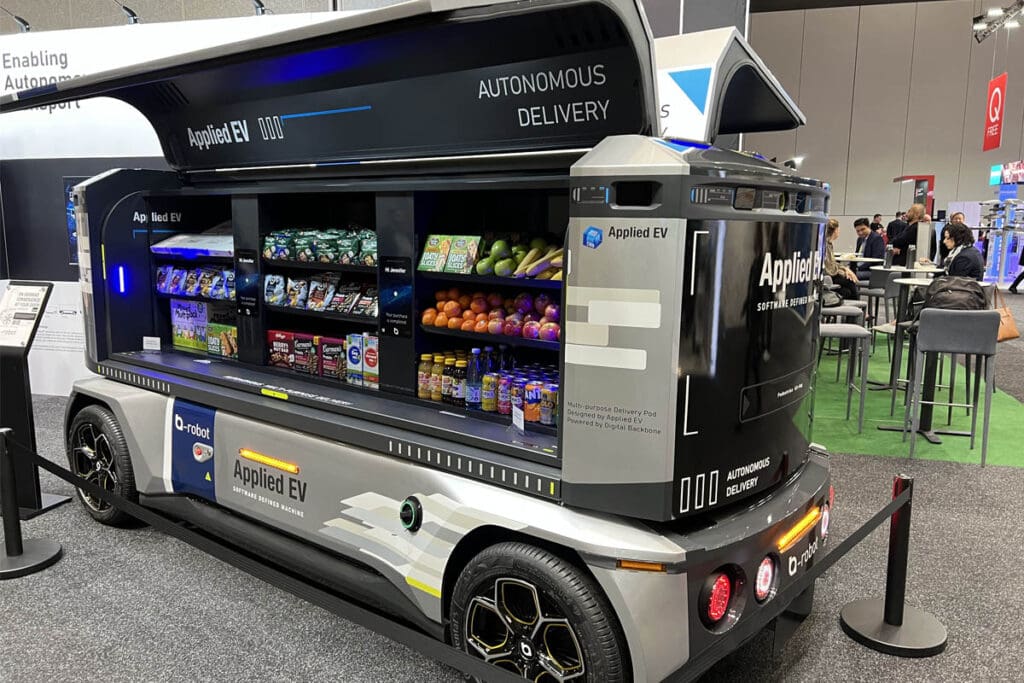
Melbourne, Victoria
Hundreds of delegates from around the world and throughout Australia visited Melbourne from 28th to 31st August to participate in the ITS Australia Global Summit 2023.
Micromobility Report was invited to be a media partner for this event and attended in that capacity. While most of the conference sessions and expo booths were focused on automotive mobility rather than micromobility, we did discover a couple of relevant sessions and participating companies.
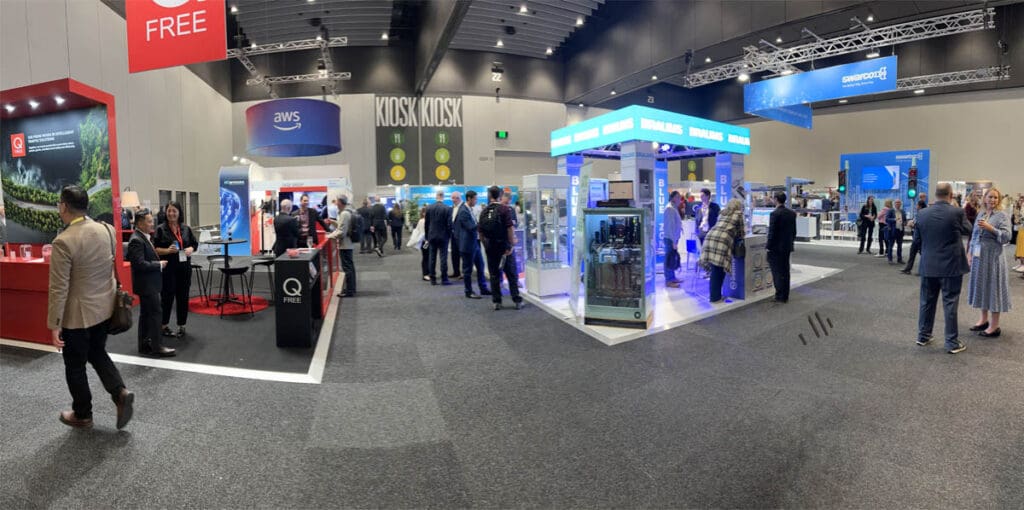
iMove Embraces Sustainable Transport
iMove delivered one of the conference sessions with most relevance to micromobility. iMove is a collaborative research program jointly funded by the Federal Government and a wide range of major corporations. They’ve committed a combined $111 million in funding, which is being spent over the 10-year project period that ends on 30th June 2027.
In his presentation, iMove Managing Director Ian Cristensen candidly admitted when the previous federal coalition government co-founded the iMove program in 2016/17, they were not even allowed to say the word ‘emissions’ let alone proactively fund research projects aimed at reducing carbon emissions of transportation.
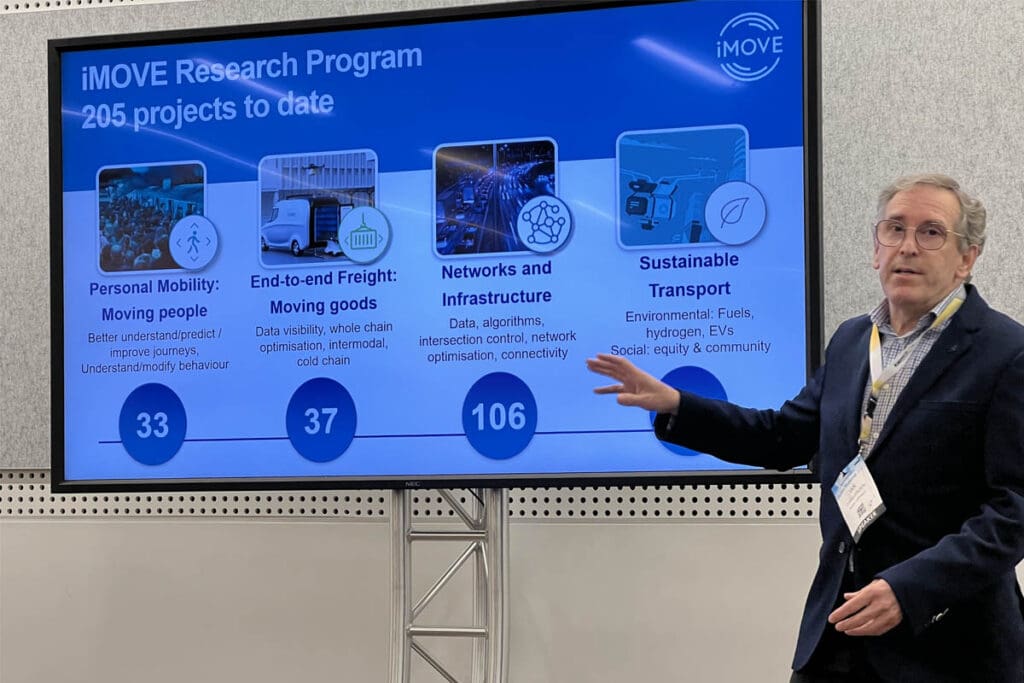
However, in the most recent two years of the program, they added a Sustainable Transport category which has funded 29 projects within that relatively short period – and with more likely in the future. As we recently reported here, one of these projects was MicroFleet’s OneDoc system for docking and recharging shared e-micromobility, which received $500,000 in funding.
Miguel Loyola, who recently completed a PhD at the University of Sydney in conjunction with iMove, was one of three PdD students who gave summary presentations of their research. Miguel was researching cognitive bias, particularly in relation to bike infrastructure.
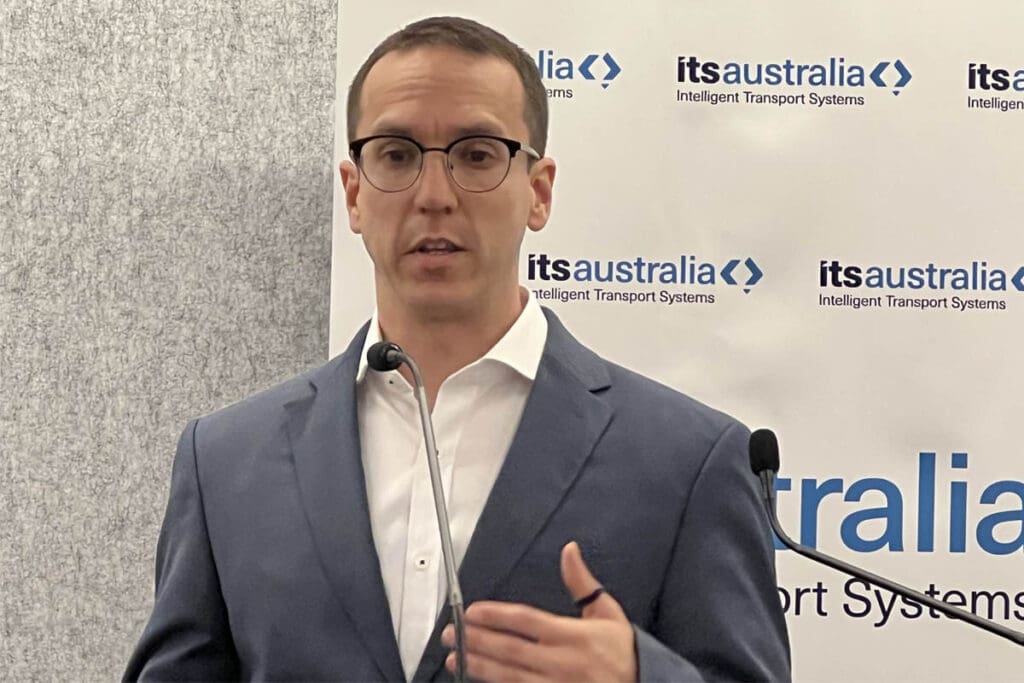
He conducted a survey which had 3,000 respondents across the UK, Netherlands and Australia.
As part of the survey, respondents in all three countries were shown identical sets of photos of streets without any bike infrastructure and asked if they thought there was room for a bike lane on each example street. The aggregated results showed that Netherlands respondents were far more likely to say ‘yes’ than those in Australia and the UK, whose responses were very similar.
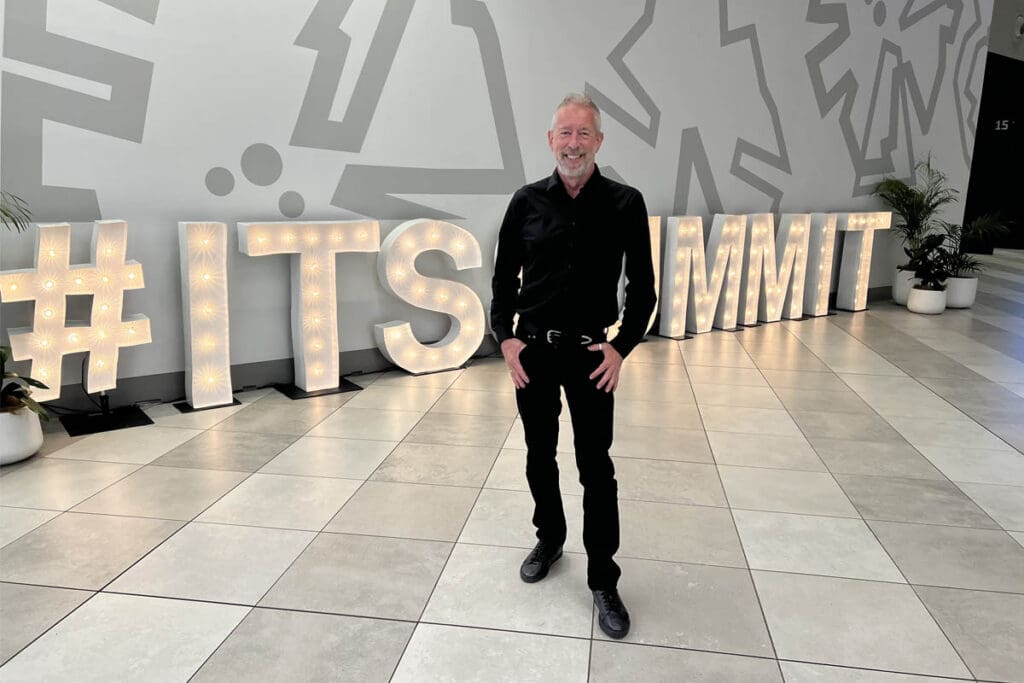
Australian-Based Travel Software Company Creates Global Market
At the ITS Global Summit we met one of the presenters, Claus von Hessberg, co-founder and chairman of Skedgo. While Claus is originally from Germany, Australia has been his home for decades and the serial entrepreneur co-founded Skego in Australia in 2009. Sydney remains the company’s headquarters.
“We are a technology business that provides services for Mobility as a Service (MaaS),” Claus explained. “Specifically, we are a ‘software as a service’ company with a focus upon mobility – showing people how to get around in urban environments.
“We combine all modes of transport and allow you to personalise your trip queries whether you’re say a parent with a pram, a businessperson with an expense account or a student on a budget, you will get personalised trip solutions.
“On the business side, we provide our solutions to enterprises, governments and start-ups around the world. We have clients on four continents at the moment. As a software company we do pretty much everything, including meetings, online.
“We’re very active in Australia, with at least six current clients.
“The team is globally distributed. Both the CEO and CTO are based in Australia. Our CTO, Adrian, is a massive proponent of active transport. He doesn’t have a car, he does everything by bike or public transport. On the rare occasions that he needs a car, he gets a Go Get.
“We’re all about giving the end user all the options. Our apps allow you to personalise your priorities. According to those preferences, we will serve personalised trips.
“We have a free TripGo App which works in 500 cities around the world and covers most of the Australian population, plus all of New Zealand. That’s our give-away, but it’s also the basis for our ‘white label’ version that we licence to corporations and governments.
Promoting Active Transport
Claus continued: “We are really promoting active transport wherever possible. I know it’s not for everyone, but it’s part of the urban transport mix. We encourage that as a perfect first and last-mile solution in the case of bike and scooter share and in the case of owned bikes it’s a perfect door-to-door solution.
“I know that Leicester in the UK, if you look at Choose How You Move Leicester, you’ll find a trip planner that’s totally our technology. Leicester approached us initially because they want to promote active transport.
“I know that in Darwin, for instance, we have Neuron (bike and scooter share) integrated. I love the Neuron scooters up there. The team and I have plans to approach more Australian cities that have bike and scooter share, because we feel the combination of those programs, together with public transport, can create a more sustainable environment.
“In the case of people who own private bikes, the TripGo app allows you to nominate the vehicles that you own (including bikes) and you can also nominate your preferred transport mode. You can promote it in the app and demote other transport modes.”
